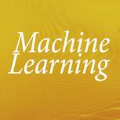Technology Readiness Levels are a mainstay for organizations that fund, develop, test, acquire, or use technologies. Technology Readiness Levels provide a standardized assessment of a technology's maturity and enable consistent comparison among technologies. They inform decisions throughout a technology's development life cycle, from concept, through development, to use. A variety of alternative Readiness Levels have been developed, including Algorithm Readiness Levels, Manufacturing Readiness Levels, Human Readiness Levels, Commercialization Readiness Levels, Machine Learning Readiness Levels, and Technology Commitment Levels. However, while Technology Readiness Levels have been increasingly applied to emerging disciplines, there are unique challenges to assessing the rapidly developing capabilities of autonomy. This paper adopts the moniker of Space Trusted Autonomy Readiness Levels to identify a two-dimensional scale of readiness and trust appropriate for the special challenges of assessing autonomy technologies that seek space use. It draws inspiration from other readiness levels' definitions, and from the rich field of trust and trustworthiness. The Space Trusted Autonomy Readiness Levels were developed by a collaborative Space Trusted Autonomy subgroup, which was created from The Space Science and Technology Partnership Forum between the United States Space Force, the National Aeronautics and Space Administration, and the National Reconnaissance Office.
翻译:技术戒备水平是资助、开发、测试、获取或使用技术的组织的主要支柱。技术戒备水平对技术成熟程度进行标准化评估,并使技术之间能够进行一致的比较。技术戒备水平为技术从概念、发展到使用的整个发展生命周期的决策提供了信息。已经开发了各种备选戒备水平,包括高温戒备水平、制造戒备水平、人类戒备水平、商业化戒备水平、机器戒备水平、机器戒备水平和技术承诺水平。但是,虽然技术戒备水平越来越多地应用于新兴学科,但在评估迅速发展自主能力方面存在着独特的挑战。这份文件采用了空间信任自主准备水平的模型,以确定适合评估寻求空间利用的自主技术的特殊挑战的二维准备和信任程度。该文件从其他准备水平的定义以及信任和信任程度的丰富领域汲取了灵感。空间信任自主准备水平是由空间信任自主分组合作开发的,该分组是空间管理局、国家航空航天局和航天局国家航空航天论坛设立的。




